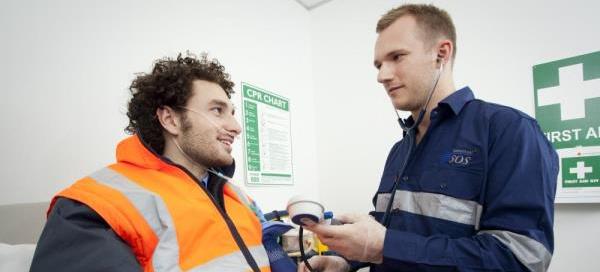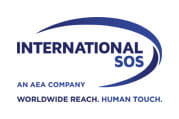Meeting the Needs of Remote Onshore Environments
Published: 17 August 2015
The Middle East is a place of high activity. It’s very rich in oil and gas, and many other companies are involved in construction, developing infrastructure and servicing the working population. International SOS supports a number of clients in some of the remotest areas of the Middle East.
AN EXTREMELY CHALLENGING ENVIRONMENT
Dr Marie Van Eck knows a lot about working in this part of the world. She previously worked for RMSI and is now International SOS’ Medical Director for the Middle East. As Dr Van Eck explains, the working environment in Iraq is “extreme in all senses.”
We have a presence at 61 different sites in Iraq. These sites are all onshore but they are highly challenging - and not just because of the on-going violence or extreme climate. A site may be only a few miles from a major city, yet it remains ‘remote’. Getting to a clinic can be very difficult. Constant security threats mean everyone has to travel in convoys, ideally in armoured vehicles. Body armour and personal security are needed too. Wearing body armour in an ambulance makes it very difficult to tend to a patient. Patients therefore have to be stable before they can undertake any journey. The quality of the roads is poor and there are frequent road blocks. It can take ages to get through check points and what should be a 30 minute journey can easily take three hours.
Dr Van Eck relies heavily on information and advice from her security colleagues. So far, no one in her team has been involved in any serious incidents. However, they are often subject to lock downs when no one can move off site for security reasons. She recalls a recent incident when she was visiting a client site in Amarah, north of Basrah. A fight between two local tribes erupted nearby and they were stuck for hours. Such conditions make it essential to have the right people and equipment on-site. They have to be fully prepared to care for patients for extended periods. Staff rotations have to be similarly flexible and there is no guarantee that medics can be moved when their rotation is over.
BUSINESS AS USUAL
Our presence on-site differs according to the client’s needs and location. It ranges from providing a paramedic and ambulance to a fully equipped clinic. Inevitably there is a heavy focus on primary healthcare: Coughs, colds, skin rashes, bruises, etc. Our oil industry clients are very safety conscious which minimises incidents and therefore traumas are thankfully a rarity. The biggest risk of injury comes from road traffic accidents. Road safety in Iraq is very poor indeed; “The Rules of the Road are seen as merely suggestions!”
Prevention is another part of our service. This too depends on individual client needs. Our occupational health clinic in downtown Basrah is supporting local nationals who are working for the Oil and Gas companies in their medical fitness for work examinations. We also administer various ‘Fit for Work’ programmes and prevention projects on individual sites. These include health and hygiene inspections, water testing and disease management protocols.
EMPOWERING CLIENTS
With advances in technology clients are increasingly looking for better solutions. One such solution is the Tempus Pro Transport monitor with integrated telemedicine. The devices on our sites are directly linked to our Assistance Centre in Dubai. This is particularly helpful when the paramedic and patient are stuck on-site. As Dr Van Eck says, “At the flick of a button, an on-site medic can get immediate advice from a clinical physician or ICU nurse. Further escalation is available if needed too. Sometimes the best approach is to watch and wait rather than transport a patient. In this environment that’s an important option. It gives everyone peace of mind.”
Even where clients have good bandwidth connectivity, this can rapidly become limited due to security issues. The low bandwidth of the Tempus Pro device is another advantage. Also, the platform is designed to be easy to add-to and upgrade in the field as required – for example point-of-injury ultrasound and video laryngoscopy were launched last year.
One of our clients is a keen advocate of the Tempus Pro Transport monitor with integrated telemedicine. In 2014 an in-depth review looked at the types of cases being referred to the International SOS clinic in Basrah. This data was used to determine the optimum level of medical support required on-site.
A paramedic and local physician with strong emergency care capability were retained on-site. The site was given a Tempus Pro device to access support from our clinic in Basrah. This resulted in a significantly improved service, making the best use of available resources and the client’s employees are now benefiting from this great technology.
In practice the Tempus Pro functionality is not required in all cases. But, as Dr Van Eck concludes: “It’s great to have this exciting technology available. From the client, to our local clinics in Iraq, to the Assistance Centre in Dubai, everyone is on the same page, physically seeing things in real time. It’s the best possible support we can give our staff, our clients and the patients." She also highlights, “Our TeleHealth solutions are not only a great way for a client to keep their workforce protected. They also optimise costs and maximise productivity.”




